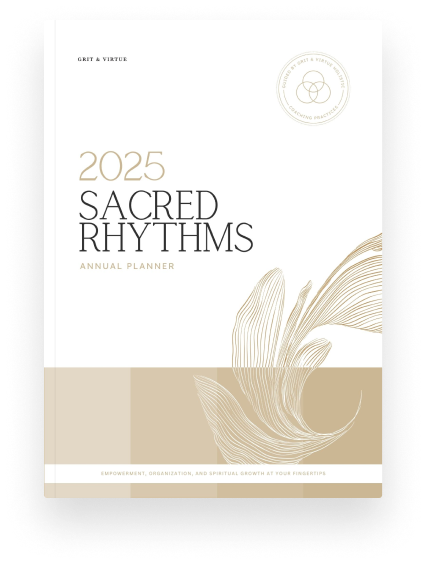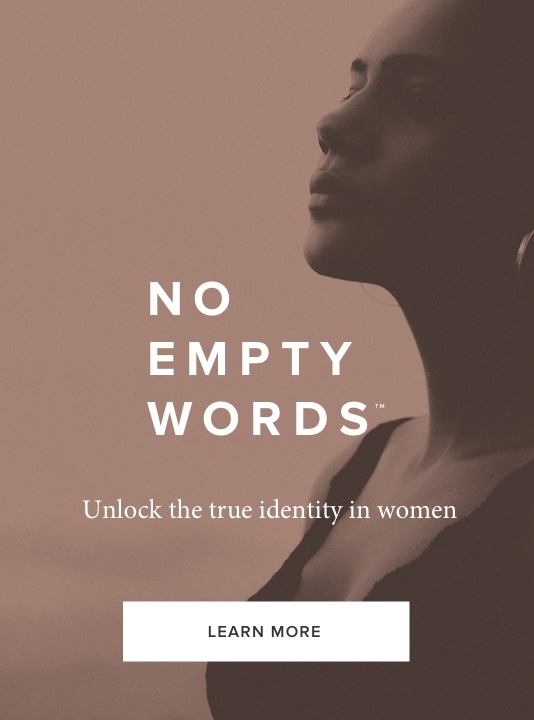I was on a panel recently that opened up with this question: As a woman, what are some of the ways you’ve been discriminated against in the workplace? And, how does the Gospel shape your response?
Whoa! Talk about starting off strong. I loved this question. So, seeing that none of my panel-mates were eager to jump in I grabbed the microphone. Here’s a paraphrase of my response:
Discrimination is both explicit and implicit. Let me give an example of how I’ve experienced both because of my gender. I own a business, which means I am in charge of acquiring my own clients. When I was about seven months pregnant, I had three different prospective clients tell me that they loved our work but they wanted to hold off until I got back from maternity leave. Now, I had never talked with any of these people about my plans for leave. They assumed what my leave would look like. I later learned that two of the prospective clients went with another firm even before I had my baby. They were making choices for me.
Because I work for myself I had the privilege of taking as much time off as I wanted with my daughter. But all the time I took was unpaid. My husband and I knew that our finances would be lean because we both paused work, but we were not prepared for people to take projects off the table because I was having a baby.
Similarly I was asked to teach a course the quarter my daughter was due to come. Actually, I was asked to teach three courses that year. I told the folks who offered that I had to sit these courses out but would be happy to do them the next year. I was never asked to teach a class again, even after I made my availability known. I will hesitate to tell people in my work world that I am pregnant if I have another child. I have learned that having a baby will cost me.
I want to provide one other example of gender discrimination that is more implicit. For most of my work life men have called me a strong woman. Not by all men, but many. Many mean this as a compliment. They notice my strength. But the way they remark can’t help me leaving that my strength defies their expectations of what a woman should be. When we want to compliment a man in his work we do not call him a strong man—we call him a strong leader. I do not often get called a strong leader at work; I get called a strong woman.
As a Christian, I look to Scripture to find footing for my responses in these moments.
The Gospel of Matthew writes, “But whoever wishes to be great among you must be your servant, and whoever wishes to be first among you must be your slave; just as the Son of Man came not to be served but to serve, and to give his life a ransom for many.” (Matthew 20:26-28)
Servant leadership—the emptying of one’s power for another—is a beautiful model for people who have power. In many areas in my life I have power. I’m white, middle class, and well educated. I am a product of and a participant in America’s dominant culture. So, much of the time, this model of servant leadership is really important for me to abide by. But I’m also a woman. Which means that at times I face both explicit and implicit gender bias in my life—and especially in my work. In these moments, asking me to empty my power on behalf of others is not as helpful. The good news is that the biblical narrative is long and complex, meaning there are lots of models for faithfulness.
Moses, a man riddled with self-doubt, was called to stand up to power as an instrument of God’s justice and hope. God says to Moses, “And now, behold the cry of the people of Israel has come to me, and I have also seen the oppression with which the Egypt oppresses them. Come, I will send you to Pharaoh that you may bring my people, the children of Israel, out of Egypt.” (Exodus 3:9-10)
Moses is asked to speak out against the structures that oppress his people. In this, we see that resistance can also be a faithful course of action.
Moses is called to resist on behalf of his people. Here we see that when resistance is rooted in community it become another modality of servant leadership. We do not resist just for the sake of ourselves, but for the integrity of the people we are tethered to. At times, resisting on behalf of others is the most faithful way we can serve.
So, in moments when I experience gender discrimination, my choice to push back is both about me, but also about more than me. I’m rooted in service to a larger community of women and of Christians who seek God’s shalom through gender equality. Just as I would hope women before
and after me speak up for all of us; I too must lean into a call of faithful resistance.
This article is from Fuller’s De Pree Center for Leadership. They serve leaders so they might live intentionally and wisely as disciples of Jesus in every part of life, including their daily work. We equip women and men to live out their calling through theologically based resources. Learn more at depree.org
Enjoyed it? Share it!
Michaela O’Donnell
Dr. Michaela O’Donnell is the Executive Director of the Max De Pree Center for Leadership where she oversees the center’s vision, strategy, program, and team, all with the goal of helping leaders respond faithfully to God in all seasons of their life and leadership. Michaela regularly writes and teaches on topics of vocation, change, innovation, creativity, faith/work, and gender dynamics. Her first book, "Make Work Matter: Your Guide to Meaningful Work in a Changing World" was recently published with Baker Books.
But wait, there's more...


















This is such a wonderful post. Thank you for sharing this–I firmly believe that equality and justice is what God intended all along, and acknowledging our privilege is part of that.